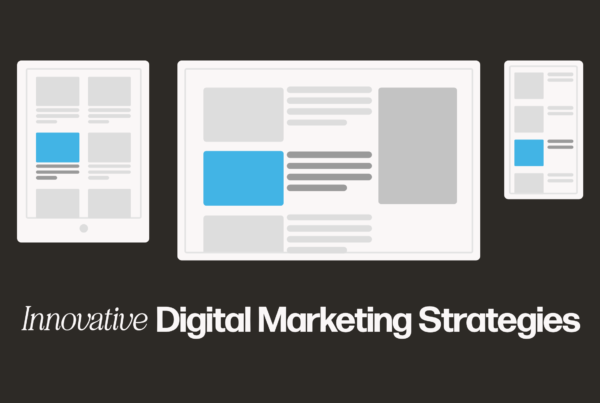For small business owners who have a product they want to sell online, there are many ecommerce platforms available today. Saas tolls have come a long way in the past ten years, and now anyone wanting to sell online has their pick of any ecommerce solution.
This variety in ecommerce software means there is a big opportunity for growth, but at the same time, there is a lot of confusion about which platform will be best for your business.
As a digital marketing agency that specializes in ecommerce, one of the big questions we frequently receive is “Which is the best ecommerce platform for a business to sell their products on?”
Of course, the answer is not a simple one. It depends on variables such as technical understanding, budget, time available, and brand equity.
In this article, we will look at some of the basics of ecommerce platforms for small business, and some key pros and cons to consider.
Marketplace: Amazon, eBay, Etsy
Many people who start a hobby business, or want to be a reseller of a specific type of product find that these ecommerce tools are great starter platforms. They offer access to a prebuilt platform with strong ecommerce functionality and a vast audience.
The two biggest ecommerce store solutions are Amazon and eBay. Both have a long history of providing consumers with the ability to buy and sell their items.
In recent years, there have been more focused ecommerce platforms such as Etsy for handmade goods, and Wish for electronics, fashion, and accessories of all kinds.
Pros of Marketplace Sellers:
Using any of these ecommerce marketplace platforms means you can access a massive amount of potential buyers. Amazon today boasts close to 200 million monthly visitors which brings huge benefits of wide exposure. eBay has 113 million monthly visitors, and Etsy manages to pull in 47 million visitors. If you make sure to follow each of the sites selling guidelines, then your sales and revenue are sure to increase when using them. They also offer the easiest payment option for your customers, even though you will pay fees as a seller.
Cons of Marketplace Sellers:
Yes, any ecommerce site or marketplace website that you sell through is going to take a portion of your revenue, either as a percentage of the sale, or a direct fee. But this isn’t the biggest con of selling via these platforms.
The biggest challenge of selling products through Amazon, eBay, Etsy, etc. is that you build less brand equity. Yes, the person is purchasing your product, but they are associating it with another platform. This means they may not consider you are an independent company or brand. Also, if you ever want to leave the platform, this means you will lose a lot of customer traffic.
Basic Ecommerce: Shopify, Bigcommerce
The next step up for most small businesses is to look at a basic ecommerce platforms. In 2021, the two biggest players in the digital commerce space that are growing in popularity are Shopify and Bigcommerce.
These two ecommerce solutions are the most popular entry points for those wanting to start their store via their website. Offering a hosted ecommerce platform on top of a conventional website makes it easier for customers to buy directly from your brand.
You can think of Shopify and Bigcommerce as platforms that have the capability already built-in. For owners of a small business, they offer beautiful templates that can be used to create a professional-looking store. This can be a great way to get started quickly and access online store functionality.
Pros of Basic Ecommerce Stores:
The ease of setup is a big part of the appeal. Shopify, in particular, is known for its beautiful templates. The other significant benefit of these platforms is the lower cost of setup. Typically, a Shopify or Bigcommerce store can be set up for a few hundred dollars and can cost $29 to $299 per month.
Cons of Basic Ecommerce Stores:
With the ease of use and setup comes limited flexibility. You will likely notice that a lot of the templates on Shopify have a similar look and feel. This sometimes makes it harder to differentiate your brand in the marketplace. The ability to add pages and customize on your own can also become tricky unless you have some experience in coding.
Advanced Ecommerce: Magento, Wooommerce
Without getting too into the minutiae of web development, you can think of both Woocommerce (owned by WordPress) and Magento (now owned by Adobe) as the most customizable ecommerce stores available. Magento still offers an open source ecommerce platfrom version, as well as a paid version.
Pros of Advanced Ecommerce:
Both Magento and WordPress are excellent options for businesses with a large range of products they want to sell. If you need to handle large scale order management, inventory management, payment processing, etc they are definitely a great resource.
Magento was initially designed with an open-source ecommerce platfrom, meaning that developers can add their own innovations and improvement along the way. The Megento open source tools offer huge potential upside for creating a custom look and feel, and better user experience on the site.
Woocommerce is custom-built for WordPress itself allows excellent SEO compatibility to attract customers to your platform via organic traffic. It is also an excellent platform for content marketing and customizing themes via their website builder.
Cons of Advanced Ecommerce:
With any level of customization comes the need for more development work. You can think of building a Magento or Woocommerce store as the same as building a physical store. It takes time and cost upfront, and some ongoing maintenance over time to keep it up to date.
How Grand Are Your Plans?
Whichever ecommerce platform you choose to build your online store with, remember that it comes down to your vision for your business. A free ecommerce platform is great if you want to test the waters with selling physical or digital products online.
If you have a few small hobby products that you want to test out, then platforms like eBay or Etsy can be a great place to start. As you grow, a site built with Shopify or Bigcommerce can be a great next step.
And if you progress to a large ecommerce business, then a custom-built Magento or WordPress ecommerce site will better suit your needs.
Ecommerce is the preferred way to buy and sell in 2021. Any small business that wants to take advantage of the ecommerce platforms available has many excellent options to choose from.














